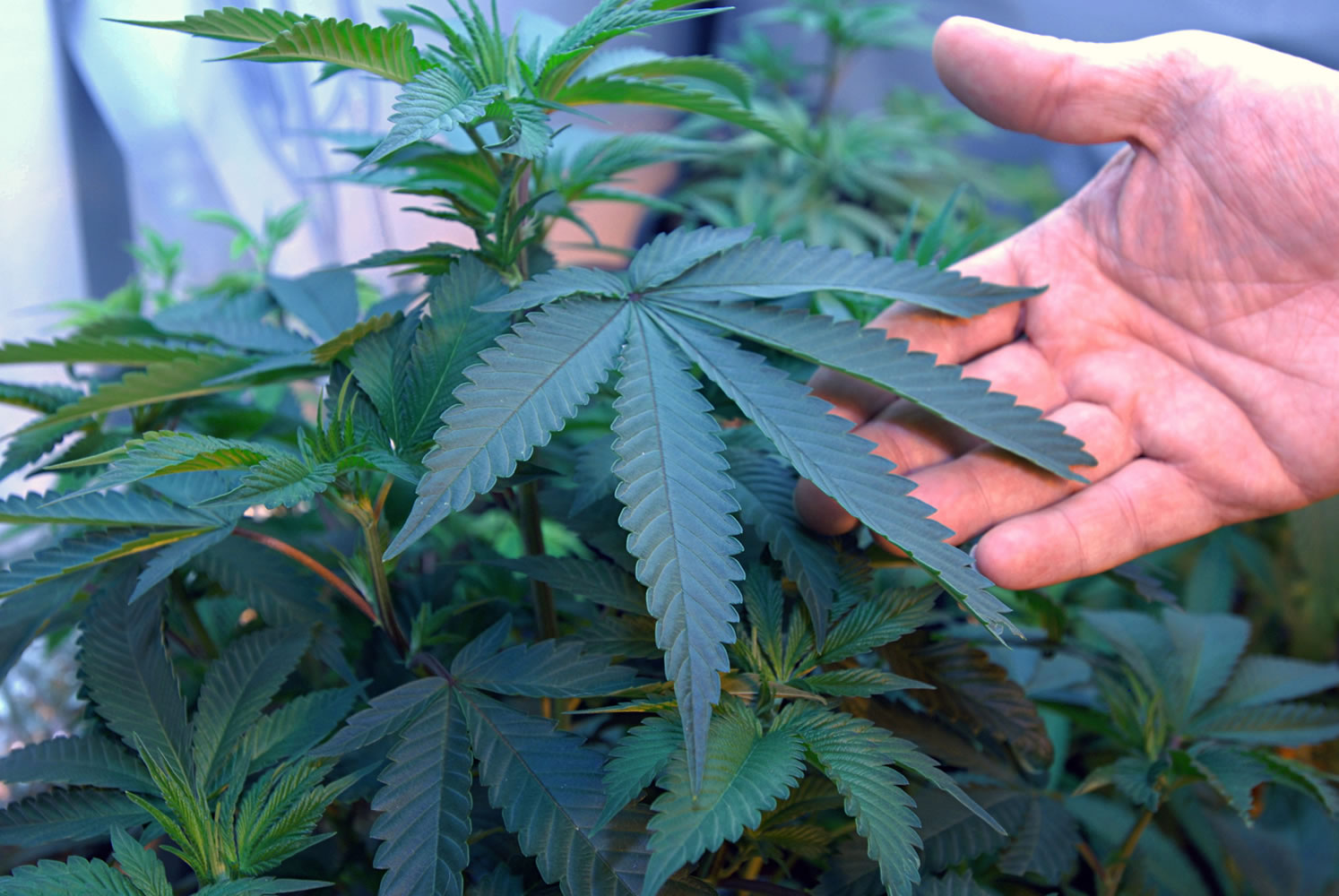SEATTLE — State agencies charged with making recommendations about the future of medical marijuana in Washington want to drastically cut how much pot patients are allowed to have, restrict what they can have it for, and make them obtain the weed at stores that are licensed under the state’s recreational marijuana law.
Representatives from the Liquor Control Board, Department of Revenue and Department of Health released their draft recommendations on Monday. An advocate for medical marijuana patients called the suggestions “ugly” and said they’d burden truly sick people who depend on pot.
Washington voters last year approved the recreational use of marijuana, as well as its sale to adults over 21 at state-licensed stores. Officials have been concerned that Washington’s unregulated medical marijuana market could undercut the sale of fully taxed pot and invite a crackdown from federal prosecutors, who have called the state’s medical marijuana system untenable.
The Legislature this year directed a work group comprising members of the agencies to evaluate how medical and recreational marijuana markets might coexist. The Liquor Control Board must send final recommendations to the Legislature by Jan. 1, and lawmakers could take up the issue in the next session.
Under the draft recommendations, the amount of marijuana patients can have would be reduced from 24 ounces to 3 ounces, which is still more than the 1 ounce adults are allowed under the recreational law. Patients and their caregivers are currently allowed to grow up to 15 marijuana plants at home, but home-growing would be eliminated, as would the collective gardens that have supplied marijuana to the hundreds of medical dispensaries that have proliferated in the state.
Medical marijuana would be sold at licensed pot shops that obtain a medical marijuana endorsement. Patients would have to register with the state, and the pot they purchase would be subject to the same high excise taxes as recreational marijuana, but patients would get a break by not having to pay local or state sales taxes.
Philip Dawdy, of the Washington Cannabis Association, called the recommendations problematic. The intent of the state medical pot law passed by voters in 1998 was to allow patients to grow their own marijuana or designate someone to grow it for them, and that should remain the law, he said.
Forcing patients to travel to a licensed recreational pot store would inconvenience many because “it’s not going to be simple for patients with debilitating conditions to get to them,” Dawdy said. In Seattle, for example, there are an estimated 200 medical marijuana dispensaries in operation, but the Liquor Control Board is permitting just 21 recreational pot stores, and those are expected to be clustered in North and South Seattle.
Alison Holcomb, the American Civil Liberties Union of Washington lawyer who drafted the state’s recreational marijuana law, said that if patients and their caregivers have to register with the state, there’s no reason to bar them from growing pot at home.
“Collective grows have been the biggest concern, in terms of being able to rein in the commercial activity that’s been occurring under the guise of medical marijuana,” Holcomb said. “I just don’t see the harm in allowing patients to have a personal supply.”
Dawdy criticized the recommendation to force medical marijuana into the recreational system because it can be more labor-intensive to grow due to patients needing a wider array of cannabis strains. Growers who are licensed to supply pot to recreational stores may not want to cut into their profits by devoting limited garden space to medical strains, Dawdy said.
“It’s ugly, and I’m frustrated,” Dawdy said. “But this is a starting point for negotiations.”
The state agencies also suggest requiring patients under 17 to have the consent of a parent or guardian before they could use cannabis. There are no age restrictions in Washington’s medical marijuana law as it exists.
The definition of “debilitating” pain would be tightened. Medical marijuana authorizations could be granted only for pain that significantly interferes with the patient’s daily life, in addition to other qualifying conditions, such as cancer. Medical professionals would be barred from running practices that focus almost exclusively on granting marijuana authorizations.
The Liquor Control Board will accept written public comment on the recommendations through Nov. 8.



